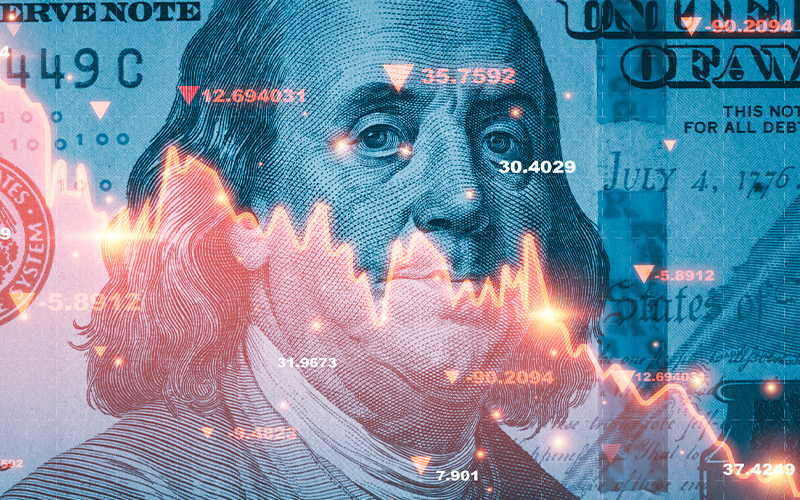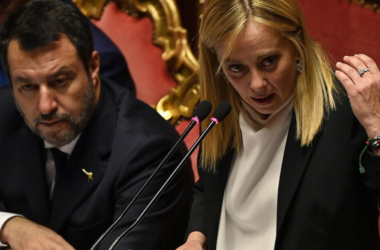As global markets face a significant downturn, concerns are mounting about the broader economic implications, with some analysts warning that continued declines could lead to a self-fulfilling prophecy of recession. This scenario, where fear-driven market behavior triggers the very economic downturn investors are trying to avoid, is becoming a pressing issue.
Morningstar DBRS analysts have issued a stark warning: while the direct impact of the recent market volatility on banks appears limited, the broader economy may not be so fortunate. The worry is that persistent market declines could force corporate CEOs to scale back investments and prompt consumers to reduce spending. These reactions could exacerbate the situation, leading to further economic contraction and potentially tipping the U.S. into a recession.
This market instability comes in the wake of a disappointing U.S. jobs report, which has stoked fears about the health of the world’s largest economy. Nonfarm payrolls for July fell far short of expectations, with only 114,000 jobs added compared to the anticipated 185,000. Coupled with an uptick in the unemployment rate to 4.3%, these figures have rattled investor confidence.
Republicans have long advocated for policies that encourage economic stability and growth, warning against the dangers of market overreaction and the potential for a downturn to spiral into a more severe recession. The current situation underscores the importance of strong leadership and sound economic policies that promote investor confidence and economic resilience.
Despite the sharp declines in global stock markets, Morningstar’s analysts maintain that U.S. banks are well-positioned to weather the storm. They point out that most U.S. banks have limited exposure to equities in their securities portfolios and balance sheets, reducing the potential impact of market volatility on their overall health. Additionally, the robust capital and liquidity buffers that banks have built up over the years are expected to provide a strong defense against any economic turbulence.
This resilience is a testament to the effectiveness of conservative economic principles that emphasize fiscal responsibility, strong capital reserves, and prudent risk management. Under Republican leadership, the financial sector has been encouraged to maintain these sound practices, ensuring that banks remain stable even in the face of market challenges.
While the recent sell-off has raised alarms, it is crucial to keep the broader economic picture in perspective. The U.S. economy is still growing, albeit at a slower pace, with a 2.8% increase in gross domestic product in the second quarter. This growth indicates that, despite the market’s current volatility, the underlying economy remains on a solid footing.
In contrast to the alarmist reactions from some corners, Republicans are advocating for a measured response that avoids further panic and focuses on maintaining economic stability. By supporting policies that encourage investment, job creation, and market confidence, the GOP aims to prevent a downturn from becoming a self-fulfilling prophecy.
In this uncertain economic climate, it is more important than ever to have leadership that understands the complexities of the market and can navigate the challenges ahead. Republicans continue to push for policies that protect American workers, businesses, and investors from the fallout of market volatility, ensuring that the economy remains strong and resilient.








